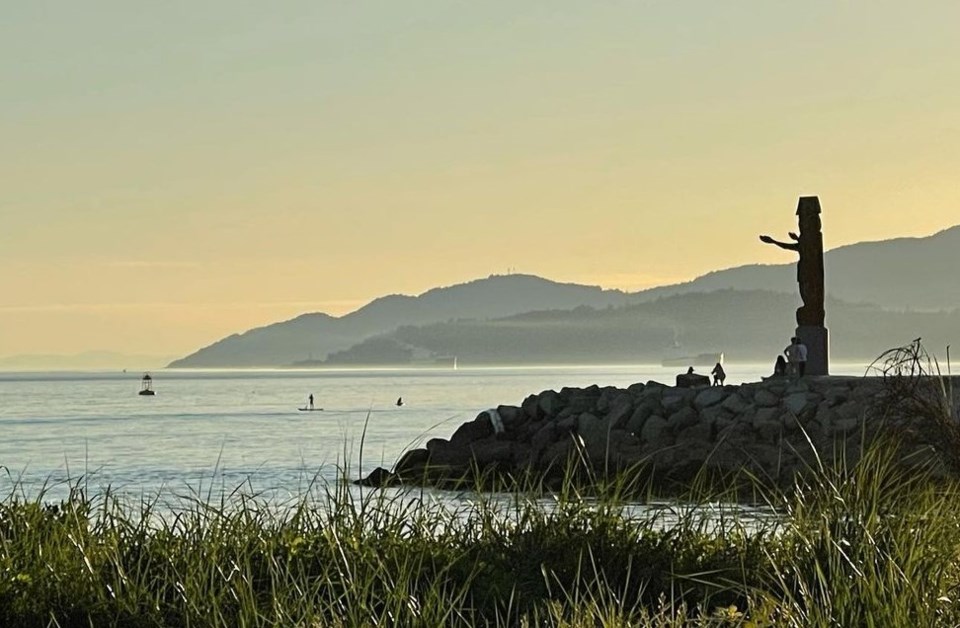Re: West Van council ‘disrespectful’ to remove land acknowledgment
Dear Editor:
I was not surprised at all to read that both Sḵwx̱wú7mesh Úxwumixw (Squamish Nation) and Tsleil-Waututh Nation leaders felt disrespected by Mayor Mark Sager and West Van council’s decision to stop saying land acknowledgments before council meetings. I too am extremely disappointed in the lack of respect shown by the mayor and council.
The mayor argues that it is not a valuable use of two minutes of time. Two minutes of time, for a statement intended to keep reconciliation and education at the forefront of our minds. Yet, the mayor and council have no problem or concern using time for all of their other repetitive council-related ceremonies.
Mayor Sager is quoted as saying, “When you repeat the same thing time and time again, people glaze over it and it actually does the opposite of what you want it to do.” This quote reads as a complete failure by a mayor who does not even seem to understand the why or the importance of ongoing land acknowledgments, let alone how to deliver them so they are self-reflective, engaging, meaningful and educational.
Land acknowledgments do not have to be static, they can be living and grow over time.
A great quote I recently read in regards to the reasons to say a land acknowledgment: “If you’re hoping to inspire others to take action to support Indigenous communities, you’re on the right track. If you’re delivering a land acknowledgment out of guilt or because everyone else is doing it, more self-reflection is in order.”
Clearly for mayor and council, more self-reflection is in order. Land acknowledgments are not a means to an end, they are a means to a beginning.
Tracey Lebedovich
District of North Vancouver
Dear Editor:
I read with disappointment that the mayor and a majority of West Van council will no longer begin meetings with a spoken Indigenous land acknowledgment, as they are a council that “values time.”
I also read that members of the Squamish and Tsleil-Waututh nations found this decision upsetting and disrespectful. I hope that the actions of the mayor and council will not be seen as a reflection of the West Vancouver community at large.
Interestingly, this reporting led me to another North Shore News story about Sierra Lee, a West Vancouver student who decided to research whether land acknowledgments were accomplishing their intended purpose.
Feedback from students included that “a lot of them mentioned that because of land acknowledgments at their school, they were able to recognize the privilege they have as a settler who resides on Indigenous territory.” Lee also said there were a few students who, prior to participating in land acknowledgments, did not know they resided on unceded territories.
Shannon Hennessy
West Vancouver
Dear Editor:
District of West Vancouver Mayor Mark Sager, supported by council, has demonstrated common sense and moral courage by doing away with the rote recitation of Indigenous land acknowledgments at the start of our local council meetings. Predictably, this decision is drawing flak from the usual suspects.
As Ellis Ross, MLA for Skeena and a former elected Chief Councillor of the Haisla Nation, has rightly observed, these statements are “empty gestures,” ones which do nothing to help address the serious challenges faced daily by our country’s Indigenous peoples. They also have absolutely nothing to do with reconciliation.
If memory serves, the need for such statements wasn’t included in the 94 “calls for action” from the Truth and Reconciliation Commission. Rather, the unvarnished truth of the matter is that they are designed to assist in creating a moral climate conducive to the extraction of reparations from both the descendants of “settlers” and other Canadians of more recent arrival, alike.
For better or worse, Canada is becoming an increasingly multicultural and multi-ethnic society, one which welcomes, again for better or worse, an increasingly large number of people from foreign lands to our country with each passing year. We may be unique in the world in our willingness to invite huge numbers of foreigners into our country annually.
If we’re to avoid the development of serious fissiparous tendencies in our society, we must stop encouraging a focus on grievance-mongering and the perpetuation of a culture of victimhood among various groups, Indigenous or otherwise. We can’t go forward while constantly looking in the rear-view mirror. West Vancouver’s mayor and council have taken a small but important step in the right direction.
David Marley
West Vancouver
What are your thoughts? Send us a letter via email by clicking here or post a comment below.



